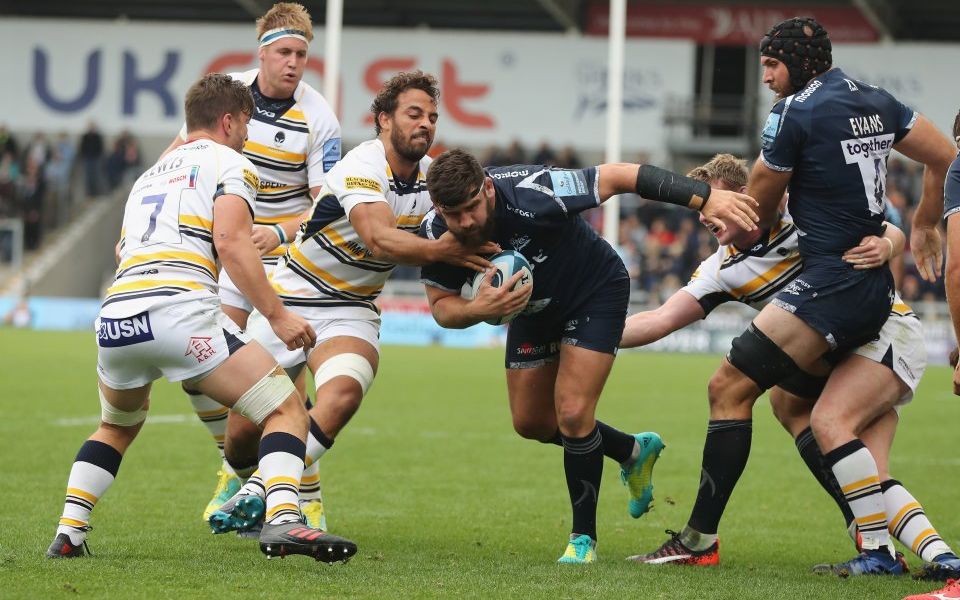Premiership takeover: A sports lawyer explains the questions rugby union clubs are pondering

The shareholders of Premiership Rugby Ltd agreed on Tuesday that the sale of a majority stake to global private equity firm and former Formula One owners, CVC Capital Partners, is not their “preferred option”.
The deal would have seen CVC purchase a 51 per cent stake in the Premiership for a reported £275m.
The result of the vote is not necessarily surprising as it required the unanimous approval of all 13 member clubs – the 12 Premiership sides plus London Irish.
Read more: Ollie Phillips: Leicester need to manage expectations after rocky start
But how did the possible takeover come about and what does it mean for rugby union?
A need for change?
The Premiership clubs have endured financial difficulties over recent years, as they have struggled to cope with rising player salaries and increased competition.
With the clubs reportedly making combined losses of £28.5m in 2016-17, it isn’t hard to see why many think the current model is becoming unsustainable.

Bath owner Bruce Craig (right) believes the CVC are undervaluing the Premiership (Source: Getty)
The supporters of the takeover likely saw the immediate financial windfall – reportedly £17m per club – as too good to turn down.
For many clubs this would go a long way towards clearing debts, while the involvement of a private equity firm also brings the lure of substantial investment and increased commercial revenue.
Why was it turned down?
It seems some clubs felt CVC has undervalued the Premiership, with Bath owner Bruce Craig believing it is worth £800m.
Others are uncomfortable with the idea of selling their majority stake and giving away control of the competition.
The third objections relate to CVC themselves. Scepticism over their ability to deliver long term sustainable growth is added to by worries about the firm’s overall aims.
Much as it did with Formula One, CVC’s motive will be to grow the value of the Premiership, with a view to making significant returns on its investment.

Premiership chairman Ian Ritchie has suggested the deal is not dead in the water (Source: Getty)
What next for Premiership Rugby?
The current vote doesn’t mean that takeover talks are dead and the initial comments of PRL’s chairman, Ian Ritchie, after the meeting would seem to support this.
It is also not out of the question that CVC will come back with a revised offer while there have also been rumblings of other interested parties coming to the table.
If a bidding war were to ensue, this would inevitably push up the price and lead to more favourable terms for the clubs.
Why the interest?
Notwithstanding that PRL revenues have reportedly grown 80 per cent over the past five years, CVC must see Premiership Rugby as an untapped commercial product.
CVC perhaps viewed the Premiership’s broadcasting potential as a means of growing its fanbase domestically and abroad.
The league’s current domestic deals with BT Sport and Channel 5 are meagre compared to football, but any bidder will want to close the gap.

There are untapped commercial opportunities to be had in the Premiership (Source: Getty)
Similarly, overseas broadcasting revenue may be seen as a large potential growth area, as has been the case for the Premier League.
While there are already a number of international broadcast partners onboard, there is certainly room for growth outside of the UK. Any overseas appeal will likely come with certain challenges though, as rugby union doesn’t have the same international pull as football.
However, the potential to grow a younger, more diverse and digitally native audience will certainly be a key factor to unlocking any commercial success.
It could well be that any future bidder sees the outliers of Amazon Prime, YouTube, Twitter and Facebook as holding the key.
None of these can be said to have fully committed to the sports industry, as say BT Sport did when it entered the market, but the general consensus is that it might not be far away.
Will it impact England?
Unlike in New Zealand and Ireland where players are centrally contracted, English players are contracted to their clubs.
It is the clubs, therefore, that ultimately control their players, subject to the professional game agreement with the Rugby Football Union.

Premiership champions Saracens are one side full of England internationals (Source: Getty)
The agreement is in place until 2024, but it does not provide for the same levels of control enjoyed by many of the other top nations. This lack of centralised control has been a recurring issue fuelling the club versus country debate.
With any future bidder keen to grow the commercial value of the Premiership, there is a concern that this could weaken the international side in the long run.
However it could be argued that the value of the Premiership and the success of the England team go hand-in-hand.
With so many considerations to balance and factors involved, it will be fascinating to see how the issue plays out.